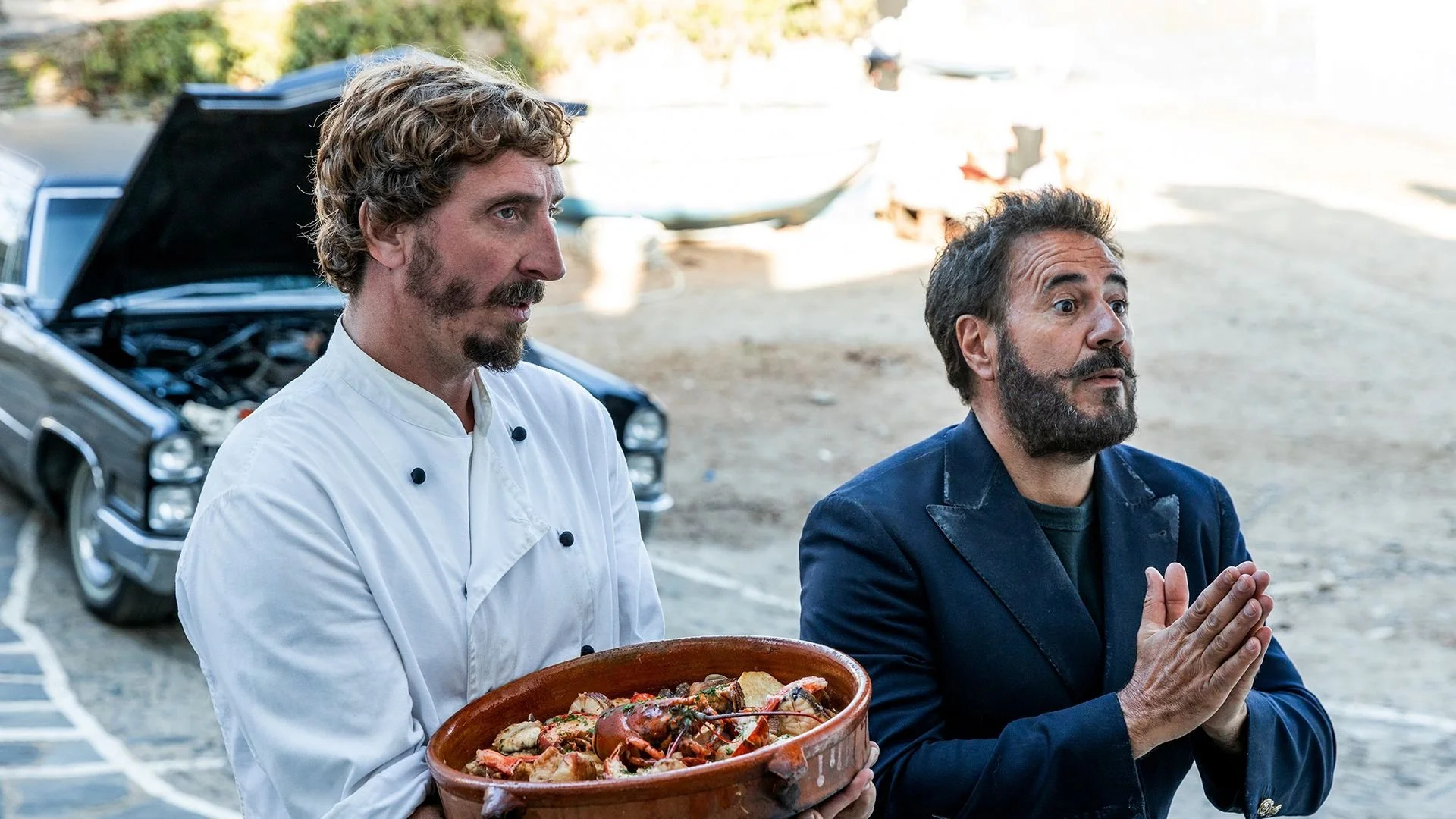WAITING FOR DALI reaches for freedom from structure
Esperando a Dalí (Waiting for Dalí)
Written and Directed by David Pujol
Starring Ivan Massagué, José Garcia, Clara Ponsot, Pol López, and Nicolas Cazalé
In Spanish and French with English subtitles
114 mins.
Unrated
Available on demand
by Daniel Pecoraro, Staff Writer
I’ve never fully gotten into the whole molecular gastronomy, avant-garde cuisine kind of thing. Food can be good, and inventive, but to me it needs some presence of soul to go along with craft. Waiting for Dalí, thankfully, has that soul, while telling a story of an El Bulli-esque restaurant and its wildly eccentric restaurateur.
But before we get to the Catalan beach and the kitchen and terrace of El Surreal, we meet Alberto (Pol López), a revolutionary (and line cook) amid Franco’s rule in 1974 Barcelona. We meet them both with their comrades in the midst of a riot (credit to DP Román Martinez de Bujo for the Ozu-esque alleyway framing device, as the uprising grows and Alberto et al. futilely attempt to avoid a beating from the military police). After he returns to the restaurant where his brother Fernando (Ivan Massagué) is also a chef and realizes how badly hurt Alberto was, they follow their friend François (the exceptionally handsome Nicolas Cazalé) to safe harbor in Cadaqués, on the coast of the Mediterranean, to work in El Surreal, owned by Dalí acolyte Jules (José Garcia). His restaurant on a cliff above the beach is frequented by a troupe of hippies and surrounded by mannequins and baubles in between the kitschy and the uncanny.
Jules’ dream is to have Dalí dine at his restaurant, and it’s his persistence (of memory, and of fanaticism) that drives the film. Eventually Fernando becomes head chef, astounding Jules with his bouillabaisse and his inventive takes on French cuisine. As Fernando comes to trust his own instincts (rather than his strict French culinary education) and embraces the traditional seafood of Cadaqués, and as El Surreal gains acclaim in the community and in Catalonia, he also takes his place in the love right-angle at the core of the story, opposite François. In between is Jules’ daughter, Lola (Clara Ponsot), a diver, Chupa Chups enthusiast, and free spirit trying to break free from his father’s Dalí monomania. Meanwhile, Alberto begins a relationship with Lesya (Varvara Borodina), a beachside stall proprietor and fellow peacenik. But they all remain under the threatening eye of Lieutenant Garrido (Paco Tous), most of all Alberto, a wanted man.
The affairs of Fernando, François, and Lola, and the rest of the Age of Aquarius gang are all pretty paint-by-numbers. There’s a lot of cooking montages, some showdowns between Lieutenant Garrido, François, Jules, and Alberto, Lesya, and the gang just, like, being, maaaaan. In particular, despite Massagué’s attempts, Fernando doesn’t bring much to the table beyond a laconic demeanor and cooking savvy.
Garcia, meanwhile, saves the film. One can’t help but enjoy Jules’s view on life, and his love and defense of Dalí’s philosophy, even ejecting two French reviewers who thought the great artist’s work was overrated. Eventually, after multiple attempts to woo Dalí and his wife Gala (Vicky Peña), Salvador (al Soler) finally makes it to El Surreal at the peak of its chaotic energy — and that of its owner. (No Beckett-esque ironic title here!) After all the viewer goes through over the course of two hours, much of it rote, it’s delightful to see a moment of triumph for Jules, his devotion to the surreal (and El Surreal) paying off.


